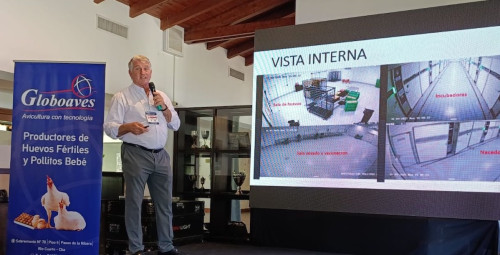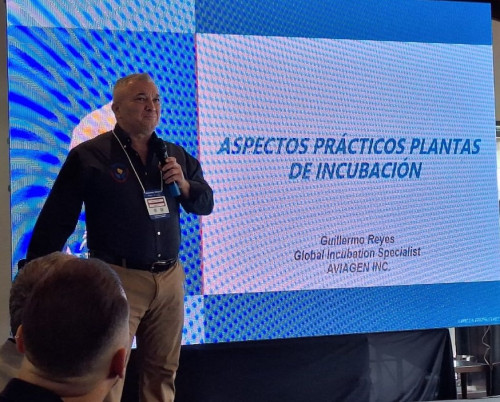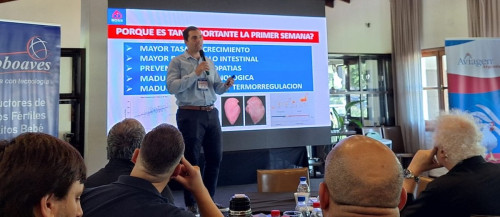
Agenda hand-picked for Aviagen and Globoaves customers
CAMPINAS, Brazil – On Nov. 6, Aviagen® Argentina and Ross® 308 AP customer Globoaves Argentina came together for a day dedicated to learning, collaboration, and relationship building with Aviagen and Globoaves customers, poultry producers, and employees.
“Topics were tailored to the specific needs of these dedicated producers, who work hard to provide families in Argentina and across Latin America with an affordable, sustainable source of protein,” said Alejandro Golin, General Manager of Aviagen Argentina, who opened the event with an overview of Aviagen and its balanced breeding strategy.
 Strengthening relationships through shared learning
Strengthening relationships through shared learning
Following a warm welcome from Daniel Cañizares, President of Globoaves Argentina, Rodrigo D’Amen, Technical Services Manager for South America Excluding Brazil (SAEB), spoke on the importance of effective male management. “Proper male management supports consistent hatchability, uniform flock performance, bird welfare, livability and feed efficiency – which contributes to sustainability,” explained D’Amen.
 Focus on hatchery and chick management
Focus on hatchery and chick management
Guillermo Reyes, Incubation Specialist from Aviagen in the U.S., shared practical guidance on hatchery operations. “Optimal incubation conditions — including temperature, humidity,and ventilation — are critical for healthy embryo development, while strong biosecurity helps protect both chicks and the wider food chain,” he noted.
Santiago Lovera, Technical Services Manager for SAEB, addressed another key area: poultry house preparation and early chick care. “Chicks are most vulnerable in their first days of life, and giving them the best possible start sets the foundation for long-term health, welfare, and flock quality,” he said.
 Economic perspective
Economic perspective
Another highlight of the event was an economic outlook presented by Santiago Bulat, economist, who provided valuable insights into market trends and the factors shaping the future of the poultry industry.
“Aviagen values these opportunities to breed success together with our customers, sharing practical developments that help strengthen chick health, food safety, and supply security for our communities,” concluded Golin.